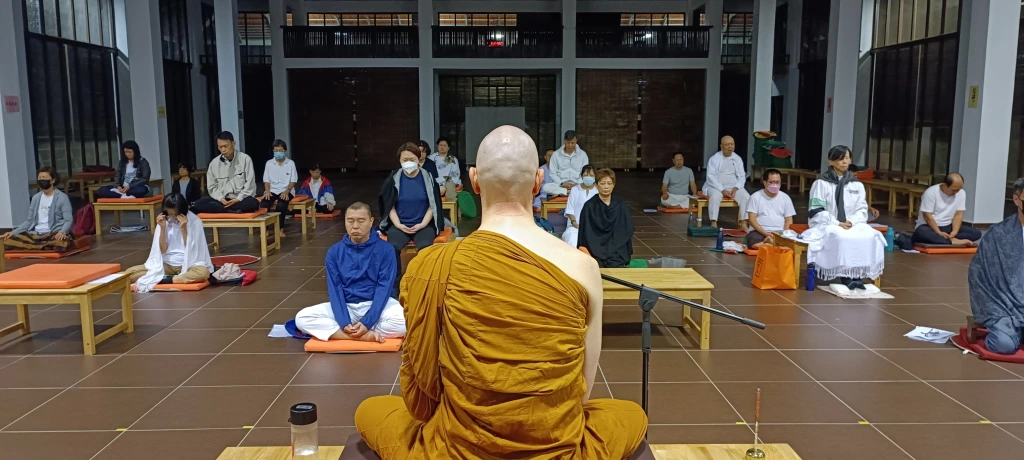Little Dust and Equality
Little Dust has a Commitment to Accessibility which guides our activities to make sure that everyone can access the Buddha’s teachings equitably. This commitment covers four major areas:
- Different Abilities
- LGBTQIA+Inclusive
- Distance
- Financial Hardship
The core work of Little Dust focuses on overcoming the disadvantage of distance, providing access to Dhamma activities for people who live outside major metropolitan areas, where there are often no temples or monasteries and face-to-face teachings are limited. This is especially important in a vast country like Australia, where the nearest Buddhist centre can often be many hundreds of kilometres away.
A somewhat linked disadvantage, for people living in rural and remote areas, is financial hardship. Many of the Buddhists now living in our regional centres are part of migration programs that encourage new immigrants to live in remote areas to get better standing for their permanent residency visa. These people often work in industries with low pay and job insecurity, such as agriculture, hospitality and aged care.
Generally, people in rural areas have lower incomes and lower net worth assets compared to people living in cities. However, financial hardship is also something felt acutely in metropolitan areas and recently Australian cities have been hit with skyrocketing rents and rising costs of living, with many people living in financial stress.
“Householders, you have supplied the mendicant Saṅgha with robes, almsfood, lodgings, and medicines and supplies for the sick.
The Buddha (an 5.176)
But you should not be content with just this much.
So you should train like this:
‘How can we, from time to time, enter and dwell in the rapture of seclusion?’

Retreats for All, Not just a Few
All people, whether rich or poor will benefit from the opportunity to undertake a meditation retreat.
Retreats cost a lot of money to run. Bills have to be paid by someone, so it seems logical to pass the cost onto the participants—if they want to attend, then they have to pay. For many people in our communities, this cost might not be much of an issue, however, there are also many in our community for whom these costs are prohibitive and prevent them from attending retreats.
As a Buddhist community, we need to see this as an issue of exclusion and inequality. Although it may only affect certain individuals, it is actually a whole community issue because we want to make sure that our precious spiritual teachings are available to all, regardless of their financial status.
In this article, I share some thoughts on how low incomes affect people’s ability to engage fully with Dhamma activities, especially meditation retreats. There is much more I would like to add, such as the complex intersections between wealth, gender, race, mental health and distance in western Buddhism but that sort of complexity is probably best left for another essay.
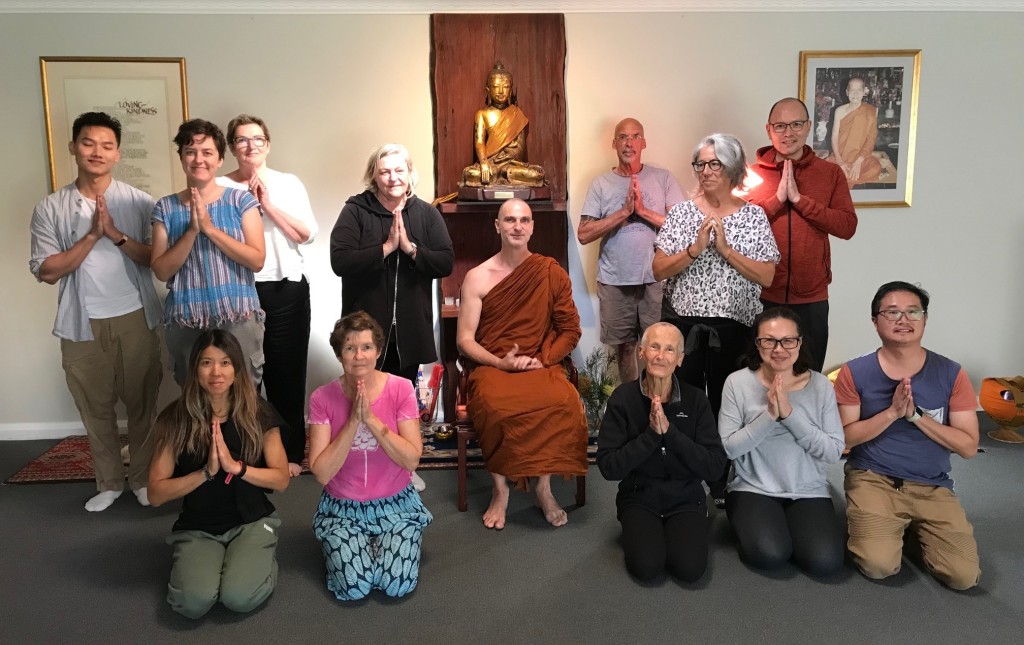
A Hidden Barrier to Participation
To people who are financially stable or well off, it might be difficult to understand how a person’s financial status affects their ability to access the Dhamma fully. It’s true that most of the time, people’s financial status is not an issue. Many Dhamma activities are completely free or low cost, which is great!
However, when it comes to meditation retreats we start to see a large gap emerge between folks who have money and can afford a retreat and those who can’t. Usually, a retreat requires payment of a facilities fee, covering food and accommodation, and sometimes a compulsory ‘donation’ for the teacher, as well. These costs can be quite high and are simply out of reach for significant segments of our community, including students, pensioners, the unemployed, and those on low or precarious incomes.
Whilst it’s true that there are free or low cost options to support our spiritual practice—such as online teachings or free talks—when it comes to retreats, we can’t truly say that there is equality of access if people are excluded due to the cost. Nor should we accept that things like online videos are somehow a replacement for a physical retreat experience. Retreats in person in a supportive environment are deeply nourishing in a way that can’t be underestimated. They are excellent opportunities for spiritual growth. My first meditation retreat radically changed my life, giving me great faith in Buddhist teachings and inspiring me to become a monk. Without this experience, I may never have followed this path.
Everyone deserves the opportunity to do a retreat. Surely our spiritual community has a role to become aware of blind spots of inequality and take action to provide equal access?
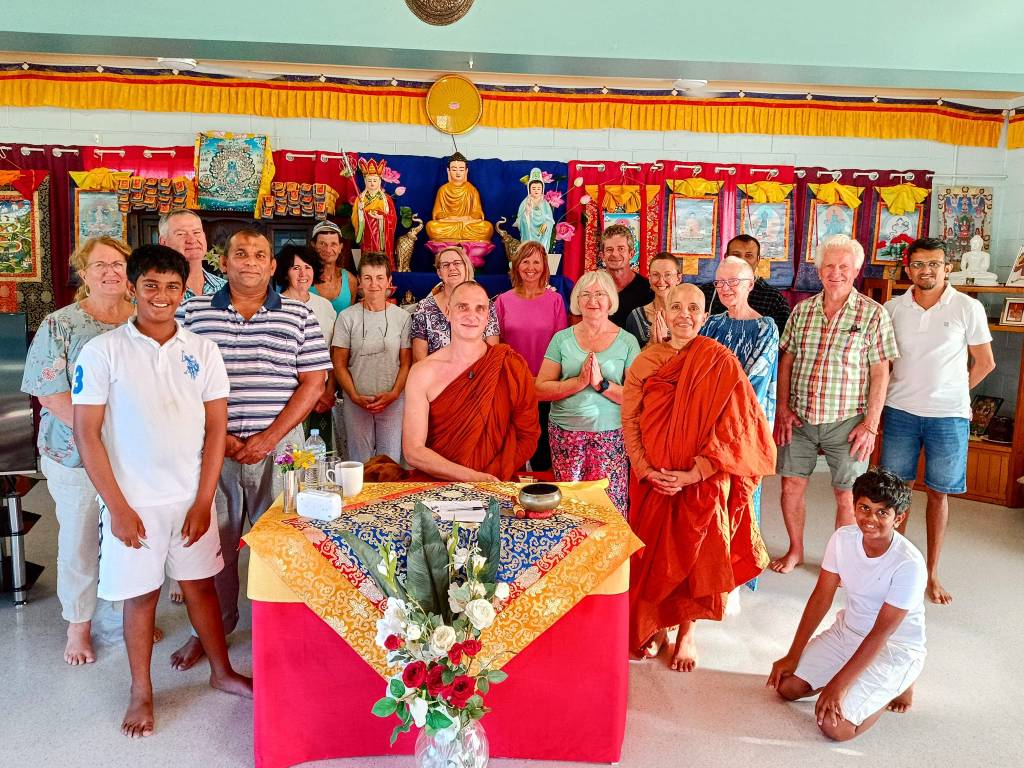
A Real-life Example
In a previous blog I discussed a Little Dust visit to Rockhampton. Originally we hoped to be able to offer a residential retreat at a caravan park in nearby Yeppoon but we had to change our plans because there were too few registrations to go ahead. The reason given by community members was that the cost of accommodation and meals was too much for them to afford. When we pivoted to a non-residential retreat instead, the number of registrations went up immediately.
When I set up Little Dust, my vision was to increase access to the Dhamma by offering Dhamma in regional areas. I already knew that lack of physical spaces, such as monasteries and retreat centres was a big barrier for communities to engage in spiritual practice but I had underestimated the financial barrier to participation for individuals.
In Rockhampton, two things stood out to me about the situation in terms of access; firstly, a retreat in a caravan park was not ideal, but was the most affordable accommodation available. Afterall, there are not any retreat centres or monasteries for hundreds of kilometres, which is why Little Dust is going into these areas in the first place. The second thing that stood out to me was that even the lowest cost accommodation in a caravan park was still out of financial reach for potential participants.
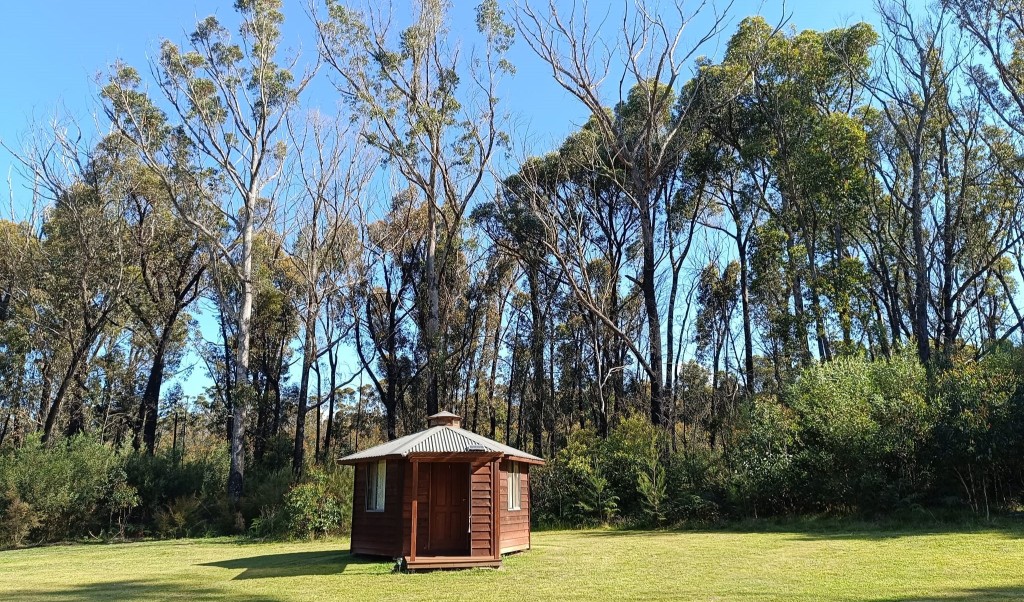
A Personal Experience
I remember when I was younger, working as a lowly paid casual in a second hand book store and desperately wanting to attend a retreat with an international teacher. However, the cost was out of my budget. The retreat fees included accommodation, food, plus a contribution to flights and donation for the teacher. All of these expenses do need to be paid somehow but at that time, the cost for me was much more than I had in savings and, further, I would actually lose money, as I wouldn’t be working during the retreat. As a casual employee, I didn’t have the benefit of holiday pay and my expenses like rent and bills still needed to be covered. When I enquired if it was possible to arrange a discount to attend, I was told that this was not possible and not something that they had ever considered.
The experience of being locked out of a Dhamma activity has stayed with me a long time and has definitely influenced my views. There is a gap in privilege in our meditation communities. There are those who can afford to take time out from work and have the money to pay for retreats. And then there are those for whom this would be a real sacrifice, and for some this would simply be impossible, or even, financially reckless.
Our society has seen a significant trend towards casual work, with precariously fluctuating incomes. More recently, Australians are experiencing high rents and a huge cost of living crisis, impacting the so-called ‘precariat’ class greatly.
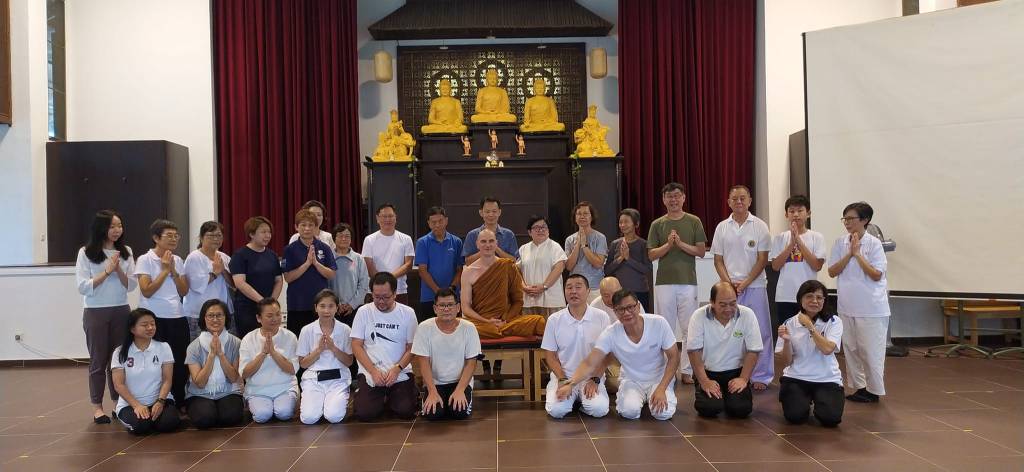
Our Responsibility as a Community
Financial accessibility is a community issue not an individuals problem. This is something that individuals cannot address alone. An analogy might be making sure that people who use wheelchairs are able to get into buildings. We recognise that society is responsible for providing accessibility; we don’t expect individuals to provide or build their own ramps. Similarly, we need to make sure our communities are inclusive rather than elitist when it comes to financial accessibility.
Ideally, any Dhamma activity such a meditation class or a weekly talk should be offered freely, with the option for those who can to make a donation. Some can donate a little, others can donate a lot, according to their means.
Of course, for retreats, there is a far greater expense because the costs of food and accommodation needs to be met, otherwise organisers will be left with a debt.
Typically, in Australia, meditation communities deal with financial risk by saying that the teachings are free but there is a compulsory facility fee for accommodation and food. It would be wonderful if retreats could also be by donation, and indeed some retreats are, such as the well known ten-day Goenka Vipassana retreats. These have always been free, and this has meant that the movement has attracted students and younger people especially who then go on to attend many subsequent retreats in future. The success of the Vipassana movement shows that it is possible.
I’m aware of some smaller community groups that have tried in the past to offer free retreats but sadly found that donations alone did not cover costs. Although the organisers tried to see it as part of their own generosity and service to the community, it created a sense of failure and, also some resentment.
Unfortunately, such experiences have made organisers wary of idealistic aims; after all, the bills still need to be paid and community organisers cannot always be expected to cover all the costs involved.
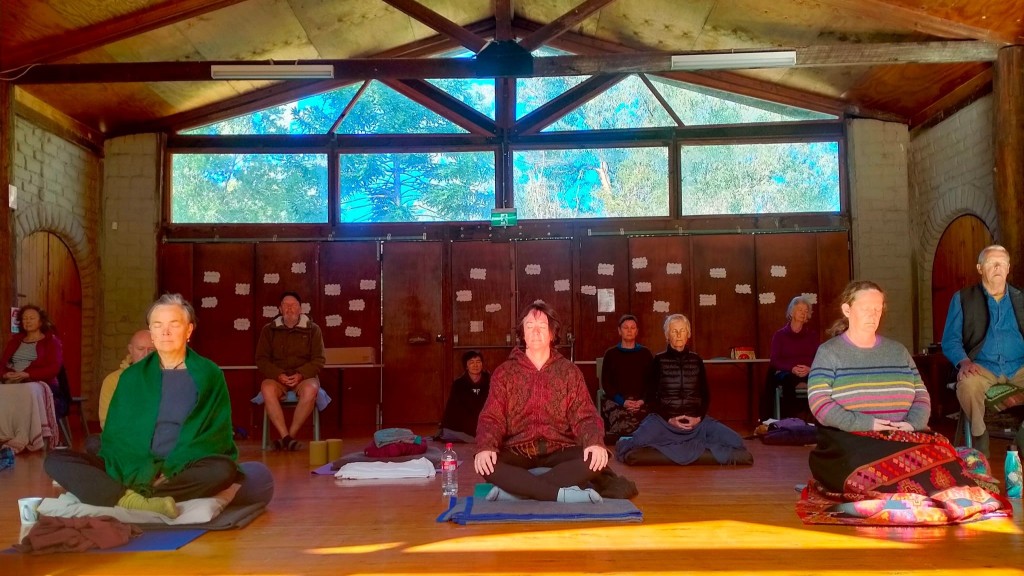
Big Picture Issues
If we can recognise that financial exclusion is a community rather than individual’s issue, then we can understand that creating real change can only happen on a big picture level. So, it’s useful to reflect on how our culture, systems and institutions end up disempowering and alienating individuals unintentionally.
Below, I focus on just three of these larger issues: the role of individualism; missed opportunities for making merit, and; the necessity of real estate.
1. Individualism vs Community
Throughout Asia, Sri Lanka and India, there are many retreat centres, monasteries and temples where people are welcome to go and practice. These places welcome everyone, regardless of wealth, and are nearly always free of charge. The community supports the ongoing costs from people making donations according to their means.
One problem in western countries generally is that meditators often don’t identify with being Buddhist per se, and often don’t belong to any particular spiritual community, or if they do, it may be only loosely so. Frequently people see their meditation through the lens of individual practice, and want to access retreats when and how they want, like pay-as-you-go consumers. They are quite happy to contribute when they attend a centre or retreat but may not give any regard for the centre’s ongoing support when they are not using it.
Like paying for a yoga class, or going to a concert or movie, we are accustomed to paying an individual fee for our retreat expenses and, consequently, see that as the limit of our obligation. However, paying a fee restricts our generosity somehow; it puts participants firmly in the role of paying customers—they’ve paid for their facilities and food, so why should they donate any more? If we believe that paying a retreat fee is all we are obliged to do, then we will always have a retreat model that is user-pays and so we will continue to exclude people who cannot afford to pay.
This system also compels us to think of retreats in terms that prioritise the individual’s spiritual experience (I’m paying for my meditation retreat, my spiritual growth) rather than seeing ourselves as part of a bigger community of individuals who also deserve an opportunity to develop on the path and who can also benefit society if they understand their mind more.
We need to foster a better culture of generosity in western countries, especially for land and Buddhist centres. The generosity we see in the west pales in comparison with the examples of giving we see in traditional Buddhist countries.
The gift of the teaching surmounts all other gifts;
The buddha (Dhp 354)
2. Merit and Missed Opportunities
If we regard people merely as consumers of experience—thinking of a retreat as just another worldly expense for individuals to bear—then we may not be able to make a value jump towards seeing spiritual practice as being worth much more than just the money it costs. For the Buddha, the gift of Dhamma was in a category of its own, beyond all materialistic things:
There are these two gifts. A gift of things of the flesh and a gift of the teaching. The better of these two gifts is the gift of the teaching.
There are these two kinds of sharing. Sharing material things and sharing the teaching. The better of these two kinds of sharing is sharing the teaching.
There are these two kinds of support. Support in material things and support in the teaching. The better of these two kinds of support is support in the teaching.
There are these two offerings. An offering of material things and an offering of the teaching. The better of these two offerings is an offering of the teaching.”
Brāhmaṇadhammayāga sutta (Iti 100)
This type of thinking goes against the usual flow of worldly experience. Our conventional consumeristic thinking, along with selfishness and greed, is always pulling at us. So we need to actively challenge materialistic, neo-liberal ideas and, instead, develop a different set of values based on understanding of making good kamma.
A user-pays model, where the retreat experience is reduced to payment for a service, feels like a missed opportunity for practitioners to see how our actions here and now are opportunities for making merit which will result in positive consequences for us in this life and the next. This type of thinking is common in Buddhist countries, where merit is better understood and enthusiastically practised, but unfortunately merit is not as greatly appreciated in western Buddhist communities.
One way that we—as a community—can make merit in a big picture way, is to see the benefits that flow from retreat experiences for ourselves and, importantly, others. If we prioritise making retreats available to all, more people can benefit and train their mind, which will lead to better outcomes for both individuals and society.
Another big picture way of approaching individual financial disadvantage is for community organisations to embed considerations of cost into all their activities, pro-actively creating a culture of financial accessibility. This approach removes the burden from the individual and makes it a community responsibility instead.
All Buddhist organisations should examine their systems and services to address blind spots of financial inequality and integrate generosity into their retreat planning and processes. This might be things like offering discounts to students or unwaged people, or keeping some dedicated free places available. Members of a community who can afford it, can offer support to other people should be encouraged to do so, and we should celebrate such meritorious actions.
Another big picture way we can make merit is to provide places for practice. The Buddha said that the gift of accommodation was the highest of materials gifts. But the cost of real estate in Australia means that such endeavours are beyond the scope of individuals, it requires a collective effort.
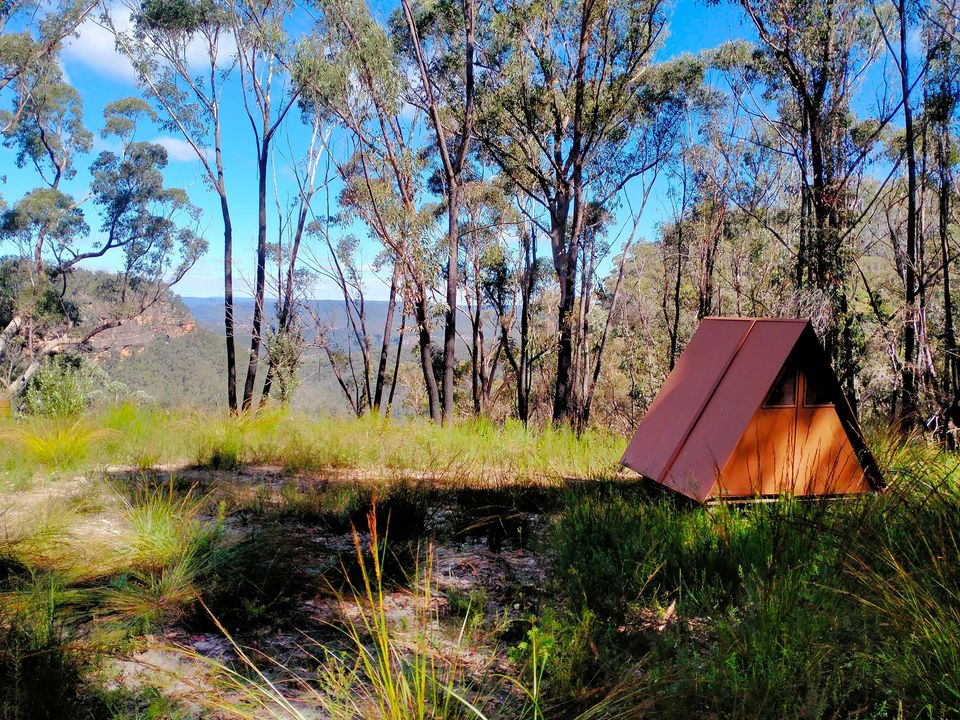
3. The Necessity of Real Estate
In countries like Australia, where Buddhism is relatively new and very much a minority religion, there is a lack of physical places owned by the community. Whilst metropolitan areas might have several temples and Buddhist centres, these places do not usually function as retreat centres, unlike other Buddhist countries.
Outside of major cities the Buddhist real estate situation is much more dire. The overwhelming majority of Australian country towns don’t have any Buddhist venues for communities to come together and practice.
This lack of real estate wealth is perhaps the biggest reason behind the cost of meditation retreats in Australia. Organisations which do not have their own venues are forced to hire retreat centres from other groups. This accommodation cost is usually the bulk of the retreat fee. This is something which could be minimised or even waived in certain cases if it was owned by the organisation themselves.
The problem of lacking Buddhist real estate is something that can only be solved as a community, Unless we come together to purchase new properties, Buddhists in Australia will always go on meeting in small fluorescent lit community centre rooms, or local church halls, and continue to do our retreats at school camps, caravan parks and Christian centres. Not having dedicated Buddhist places of practice has a considerable impact on the spiritual life of our communities, generally, however in the the limited context of this article, it is simply worth noting how this affects people’s ability to access retreats due to higher costs of hiring venues.
When we look at the temples and retreat centres in urban areas or in other countries, we should not just take them for granted. These places did not just appear from nowhere; they are the result of a huge community effort that saw like-minded people coming together to build something for the future; something that would benefit others, not just themselves.
The Buddha said people who think in this way are rare:
“Monks, these two people are hard to find in the world. Which two? The one who is first to do a kindness, and the one who is grateful for a kindness done and feels obligated to repay it. These two people are hard to find in the world.”
(AN 2.119)
It is incredibly fortunate that previous generations created spaces for us out of compassion, so that we can simply turn up to and make the most of these places for our personal practice. If we have ever benefited from hearing a teaching or doing a retreat, then, surely, it is also up to us to make sure that others can continue to access such places in the future. We need to support existing centres but also to make sure that we support the growth of our community, which also means we need to include everyone who wants to attend retreat centres, regardless of their wealth.
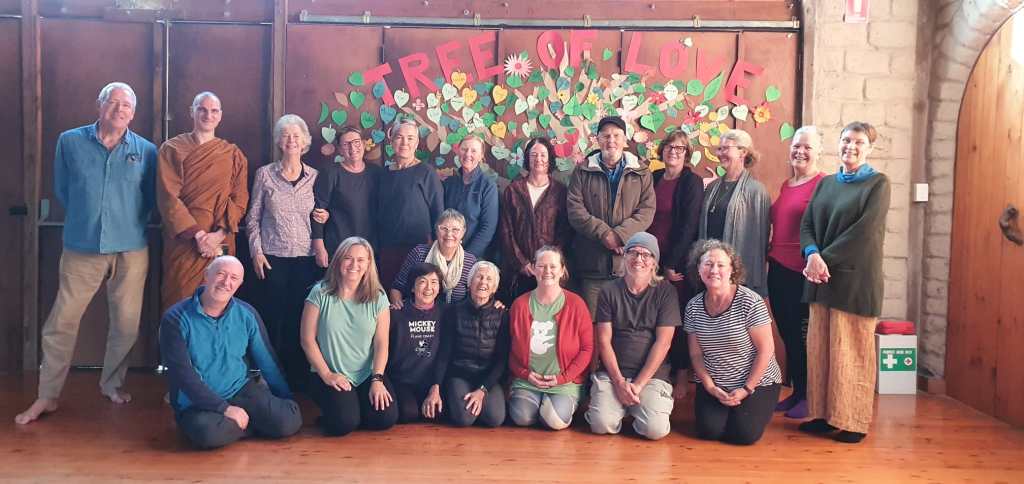
Some Inspiring Community Solutions
The issue of financial barriers to participation in meditation communities has been getting more attention in the last few years. This awareness has prompted some hard thinking and also spawned new approaches.
Some groups now advertise retreats with payment structures that have a sliding scale for waged, unwaged and students. Other groups embed concerns for cost into their bookings process by asking if people “Need a hand,’ or if they can “Lend a Hand,” by donating to allow others to attend. Some groups add a statement saying that no-one will be turned away for lack of funds and that they should get in touch if they have financial problems. Another good example is a retreat I did last year with the Newcastle Sit-In meditation group, where one kind person offered to cover the cost of anyone who was unable to pay the accommodation and food expenses.
Recently, the Association of Engaged Buddhists promoted a retreat indicating that scholarships are available via the Open Dharma Foundation. This group provides grants up to US$300 for individuals in quarterly funding rounds each year. It’s a good example of individuals seeing themselves as part of a community, stepping up to actively combat inequality and promote inclusiveness. I love this idea, however, it’s an international organisation with limited funding available, so if people around the world are applying, then someone is bound to miss out. Further, the idea of people ‘competing’ for limited funds to attend a retreat also feels wrong somehow, but it is certainly better than nothing and a step in the right direction.
Even when things like scholarships are available, there are still social barriers to overcome, including the shame and stigma of outing yourself as being in need of financial support to your spiritual community. This barrier should not be underestimated.
It’s worth remembering, though, that this stigma and the need for scholarships would simply not exist in cases where retreats are offered on a donation basis. This is the ideal model.
What is Little Dust Doing to Help?
My aim with Little Dust is to offer free events. However, working with many other organisations and different communities—all with their own ways of doing things—it is not always possible to hold events at no cost to participants.
I consciously integrate consideration for financial accessibility into all Little Dust activities. When working with other organisations, I proactively raise financial accessibility early on in the planning process. If events cannot be free, then I ask organisers to offer the lowest price possible. I also ask that organisations to let people know that no one will be turned away for lack of funds and that financial support is available from Little Dust if needed.
In the past, Little Dust has subsidised the overall cost of retreats to reduce the cost to participants and we have also offered financial hardship scholarships to individuals who could not pay the retreat fee.
Help Little Dust to Support Individuals
Eventually, if donations to Little Dust allow it, we would like to underwrite the costs of the retreat to make all of our retreats completely free. Any donations received at the retreat will be used to pay the costs incurred, with any extra donations used for future events.
If you would like to help a meditator to attend a retreat, please visit the support page below.

